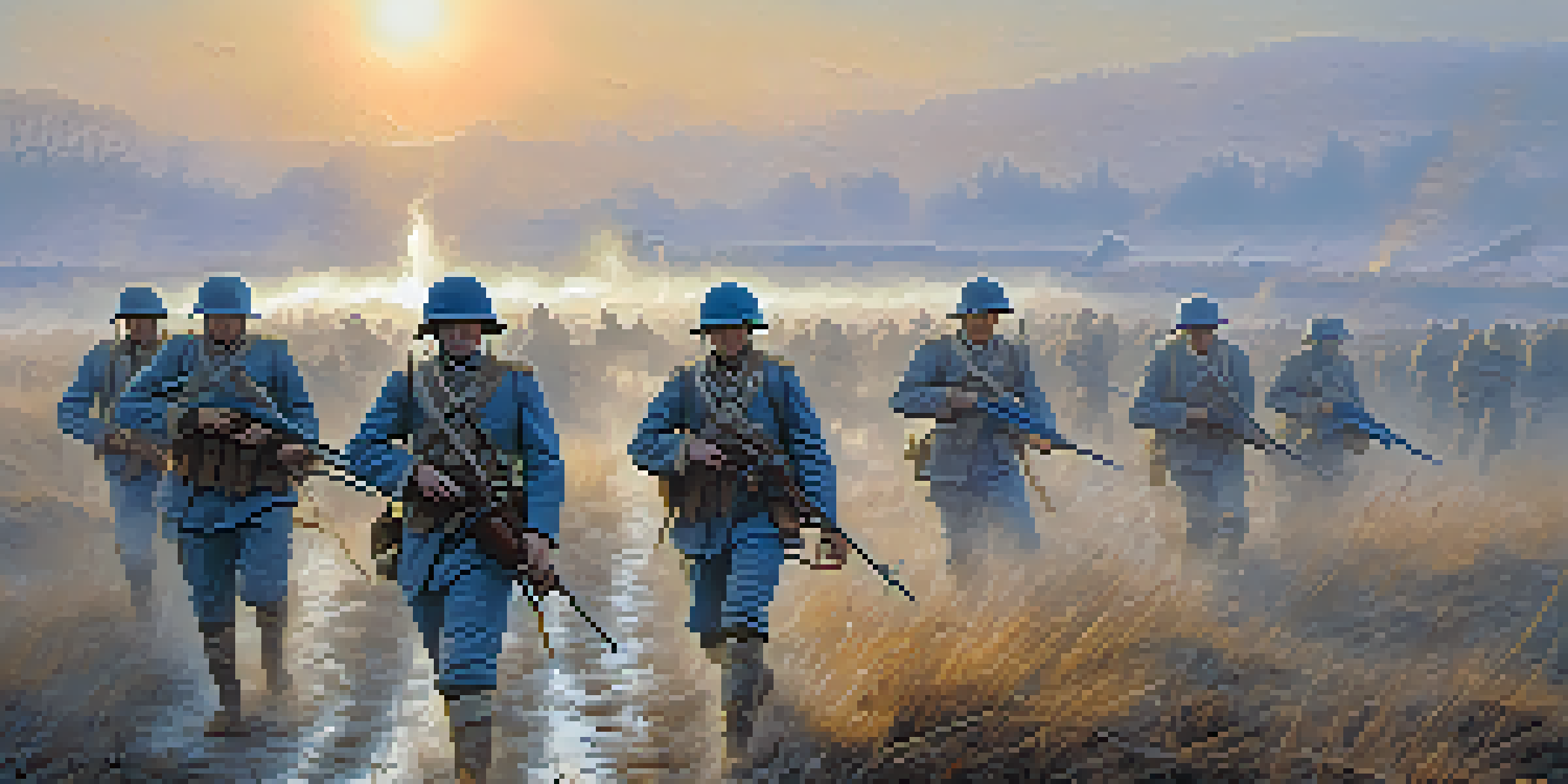The Reality of War: How Hollywood Shapes Public Perception

Understanding War Through a Cinematic Lens
War has always been a deeply complex subject, but Hollywood has a unique way of simplifying these complexities through film. Movies like 'Saving Private Ryan' or 'Full Metal Jacket' offer audiences a glimpse into the chaos and camaraderie of military life. However, the dramatization often skews the true nature of conflict, focusing on heroism and sacrifice while glossing over the grim realities. This cinematic lens shapes how the public perceives war, often romanticizing the experience.
The Power of Storytelling in Shaping Narratives
At its core, storytelling is about connection and understanding. Hollywood utilizes this power to weave narratives that resonate with audiences, often framing conflicts in a way that elicits strong emotional responses. For instance, films that depict the struggles of soldiers returning home can foster empathy and awareness about veteran issues. However, the narratives can also oversimplify the motivations and consequences of war, leaving viewers with a skewed perception.
War Films Shape Public Perception
Hollywood often romanticizes war, influencing how the public views its complexities and realities.
The Role of Authenticity in War Films
Authenticity plays a crucial role in how war is portrayed on screen. Filmmakers often consult military experts and veterans to lend credibility to their stories. Yet, the balance between artistic license and factual representation is delicate; sometimes, cinematic flair can overshadow reality. While a film might accurately depict certain elements of warfare, it can still mislead audiences about the broader implications of conflict.
Propaganda and Its Impact on Public Perception
Throughout history, films have been used as tools for propaganda, shaping public opinion about wars and conflicts. During World War II, for instance, Hollywood produced films that glorified the American military while vilifying enemy forces. This not only boosted morale but also influenced how civilians understood their role in the war effort. As a result, the line between entertainment and propaganda can sometimes blur, affecting how we perceive reality.
Authenticity vs. Cinematic Flair
Filmmakers balance the need for authenticity with artistic license, sometimes leading to misleading portrayals of war.
The Emotional Toll of War on Film
Movies often focus on the emotional aspects of war, depicting the struggles of soldiers and their families. This portrayal can create a sense of shared experience and understanding among viewers, bridging the gap between civilians and military personnel. However, it can also lead to a disconnection from the actual experiences of those who endure war firsthand. The emotional narratives crafted by Hollywood can sometimes overshadow the harsher truths of war.
The Influence of Technology on War Depictions
Advancements in technology have transformed how filmmakers depict war, enabling them to create more realistic and immersive experiences. CGI and practical effects can make battle scenes appear more intense, drawing viewers deeper into the narrative. However, this technological prowess raises questions about authenticity and whether these portrayals distort our understanding of real-world combat. The line between reality and dramatization becomes increasingly blurred as technology evolves.
War Films Simplify Complex Realities
Hollywood often portrays war in a way that highlights heroism while downplaying the grim realities of conflict.
The Audience's Role in Interpreting War Films
As viewers, we play an active role in shaping the narratives presented by Hollywood. Our interpretations of films can vary widely based on personal experiences and cultural backgrounds. Some may see a film as a critique of war, while others might view it as a glorification of violence. This diversity in interpretation highlights the responsibility of audiences to critically engage with what they watch, fostering a more nuanced understanding of war.
Moving Towards a More Honest Representation of War
In recent years, there has been a shift toward more authentic representations of war in film. Directors and writers are increasingly drawing from real-life experiences and incorporating diverse perspectives to present a fuller picture. This evolution can help demystify war and encourage conversations about its complexities. As Hollywood continues to evolve, the hope is that films will not only entertain but also educate audiences about the realities of war.
Authenticity vs. Artistic License
Filmmakers strive for authenticity in war films, yet the blend of factual representation and creative storytelling can mislead audiences.